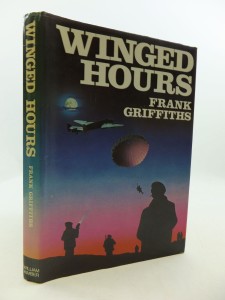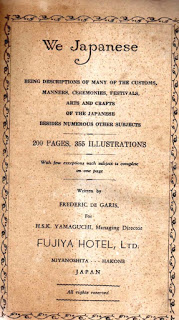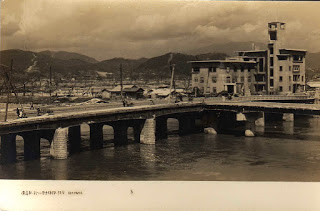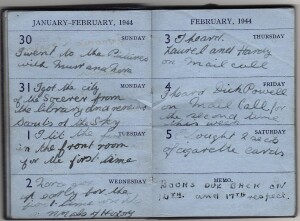 Found among the papers of the academic and occasional writer Patrick O’Donoghue is this tiny diary covering the first four months of 1944, when, from the style of handwriting and the details of his leisure hours activity, he appears to have been around ten years old. The document is interesting in several respects. Although the entries are often brief and record rather dull events ( I went on a walk’, ‘ Libraries today’ ) they paint a vivid picture of the life of an ordinary schoolboy in wartime, both in the country and in London. But there are puzzles in this split existence. Although he lived near Ayslsham, north of Norwich, over the Christmas holidays of 1943/44, he ‘went back’ on January 8th to school in London, where he visited Foyles bookshop and viewed the bomb damage done to homes in Thorpedale Road, Crouch Hill ( presumably near to where he lived ). Patrick also recorded an air raid for January 21st.
Found among the papers of the academic and occasional writer Patrick O’Donoghue is this tiny diary covering the first four months of 1944, when, from the style of handwriting and the details of his leisure hours activity, he appears to have been around ten years old. The document is interesting in several respects. Although the entries are often brief and record rather dull events ( I went on a walk’, ‘ Libraries today’ ) they paint a vivid picture of the life of an ordinary schoolboy in wartime, both in the country and in London. But there are puzzles in this split existence. Although he lived near Ayslsham, north of Norwich, over the Christmas holidays of 1943/44, he ‘went back’ on January 8th to school in London, where he visited Foyles bookshop and viewed the bomb damage done to homes in Thorpedale Road, Crouch Hill ( presumably near to where he lived ). Patrick also recorded an air raid for January 21st.
London seems to have offered far more entertainment for Patrick than rural Norfolk had ever done. There were films to be seen, and one he particularly anticipated was ‘The Phantom of the Opera ‘ starring Claude Rains and Nelson Eddy (1943), which had eventually reached London by February 11th, which is when Nora ( possibly his elder sister) saw it with Seymour ( possibly her boyfriend) . The previous evening the couple had seen ‘The Girls he Left Behind’. It is likely that Patrick, as a juvenile was barred from seeing both this ‘ romance ‘ as well as the horror film, though he did see‘ Behind the Rising Sun ‘ at the Astoria. One of the films he intended to see was shown at the library. One wonders if this, like ‘The Battle of Britain ‘, which he was to see in Norfolk in March, was a government propaganda film — actually directed by Frank Capra and made in the USA–of which there were quite a few during the War. There were other forms of entertainment, besides films. On January 29thPatrick recorded that ‘ Uncle Jim brought a huge load of comics today. I bought 3 comics too. We know that he favoured The Dandy, which had only been published for a few years. And of course, there were books available from the library. Those he borrowed were the usual adventure stories and thrillers ( The City of the Sorcerer and Scouts of the Sky) and T. C. Bridge’s Adventure Omnibus. Then on February 22nd he ‘came home’ to Norfolk. Here he bought two books in Norwich and on the 23rd listened to the Charlie McCarthy comedy show on radio. Rather alarmingly, he and a friend or two on the following Saturday afternoon made a ‘ bomb ‘, as doubtless many boys did at the time. For every day of the following week he seems to have had a ‘good time‘, with or without his friend Derek. Continue reading

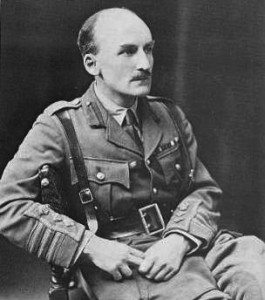 international expert on the use of tanks in warfare who was a strong influence on the German tactician Guderian, but also a Nazi sympathizer who met Hitler, and the only top-ranking officer in the British Army who in 1939 was not invited to join the fight against the Fuhrer. Nicknamed ‘ Boney ‘ by his peers presumably for his combative mien and brilliance as a strategist, and indeed height ( he was only 5’ 4”) Fuller was disliked by many for his high-handedness and argumentative nature. But some of this unpopularity may also have had its origin in his devotion to the occult, on which he wrote articles and books, including a study of Aleister Crowley. Indeed we at Jot 101 first came across his name in the April 1926 issue of The Occult Review, where he contributed a long article entitled ‘ The Black Arts ‘.
international expert on the use of tanks in warfare who was a strong influence on the German tactician Guderian, but also a Nazi sympathizer who met Hitler, and the only top-ranking officer in the British Army who in 1939 was not invited to join the fight against the Fuhrer. Nicknamed ‘ Boney ‘ by his peers presumably for his combative mien and brilliance as a strategist, and indeed height ( he was only 5’ 4”) Fuller was disliked by many for his high-handedness and argumentative nature. But some of this unpopularity may also have had its origin in his devotion to the occult, on which he wrote articles and books, including a study of Aleister Crowley. Indeed we at Jot 101 first came across his name in the April 1926 issue of The Occult Review, where he contributed a long article entitled ‘ The Black Arts ‘.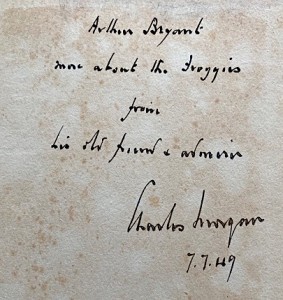
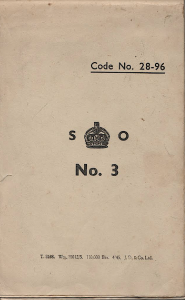
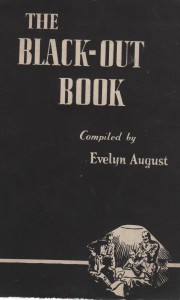
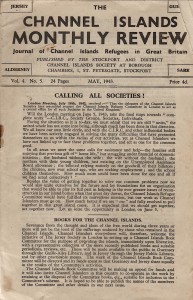
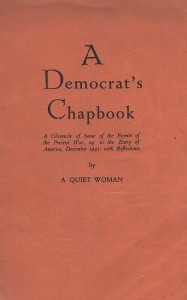 The identity of the ‘ quiet woman‘ who wrote A Democrat’s Chapbook (1942), a hundred page long commentary in free verse on the events of the Second World War up to the time when America joined the Allied forces, was only revealed when Anne Powell included two passages from it in her anthology of female war poetry, Shadows of War (1999 ). However, those who had read her volume of Georgian verse entitled Songs from the Sussex Downs ( 1915), a copy of which was found in the collection of Wilfred Owen, might have recognised the style as that of ‘Peggy Whitehouse’, whose Mary By the Sea also appeared under this name in 1946. All three books were the work of Mrs Frances Mundy –Castle (1875 – 1959).
The identity of the ‘ quiet woman‘ who wrote A Democrat’s Chapbook (1942), a hundred page long commentary in free verse on the events of the Second World War up to the time when America joined the Allied forces, was only revealed when Anne Powell included two passages from it in her anthology of female war poetry, Shadows of War (1999 ). However, those who had read her volume of Georgian verse entitled Songs from the Sussex Downs ( 1915), a copy of which was found in the collection of Wilfred Owen, might have recognised the style as that of ‘Peggy Whitehouse’, whose Mary By the Sea also appeared under this name in 1946. All three books were the work of Mrs Frances Mundy –Castle (1875 – 1959).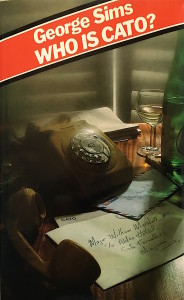 Found in a thriller by
Found in a thriller by 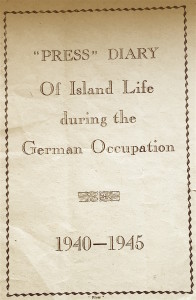
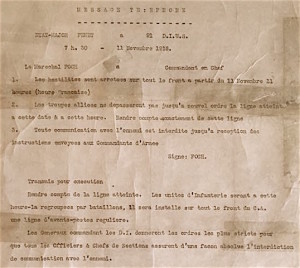
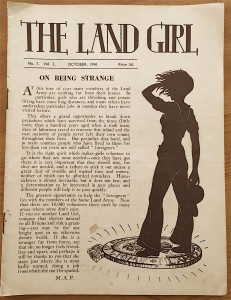
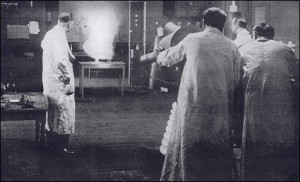
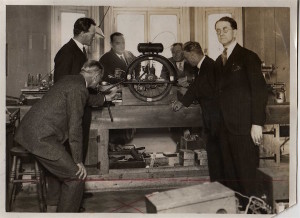
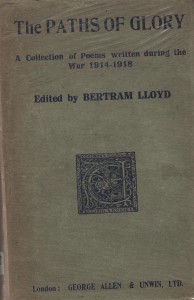
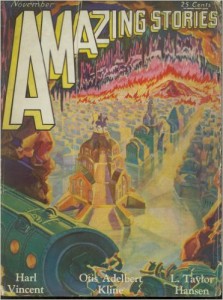 Found in The Poetry of Flight, an Anthology (edited by Stella Wolfe Murray, published by Heath Cranton, London 1925) this stirring poem by the American poet Minna Irving (1857 – 1940) Her real name was Minnie Odell Michiner and she was from Tarrytown, New York. She published a poetry collection, “Songs of a Haunted Heart” in 1888, and published poems in turn-of-the-century periodicals such as Munsey’s, The Smart Set, and The Gray Goose. She also wrote a science fiction story “The Moon Woman” which appeared in the November 1929 issue of Amazing Stories (right.) She has no Wikipedia entry. The anthology, which has pieces by Homer, Swinburne, Duncan Campbell Scott and W.H. Davies is dedicated ‘..to the memory of all have given their lives for aeronautical progress.’ Her poem could have been written by an Italian Futurist and has all the excitement of the early days of aviation.
Found in The Poetry of Flight, an Anthology (edited by Stella Wolfe Murray, published by Heath Cranton, London 1925) this stirring poem by the American poet Minna Irving (1857 – 1940) Her real name was Minnie Odell Michiner and she was from Tarrytown, New York. She published a poetry collection, “Songs of a Haunted Heart” in 1888, and published poems in turn-of-the-century periodicals such as Munsey’s, The Smart Set, and The Gray Goose. She also wrote a science fiction story “The Moon Woman” which appeared in the November 1929 issue of Amazing Stories (right.) She has no Wikipedia entry. The anthology, which has pieces by Homer, Swinburne, Duncan Campbell Scott and W.H. Davies is dedicated ‘..to the memory of all have given their lives for aeronautical progress.’ Her poem could have been written by an Italian Futurist and has all the excitement of the early days of aviation.